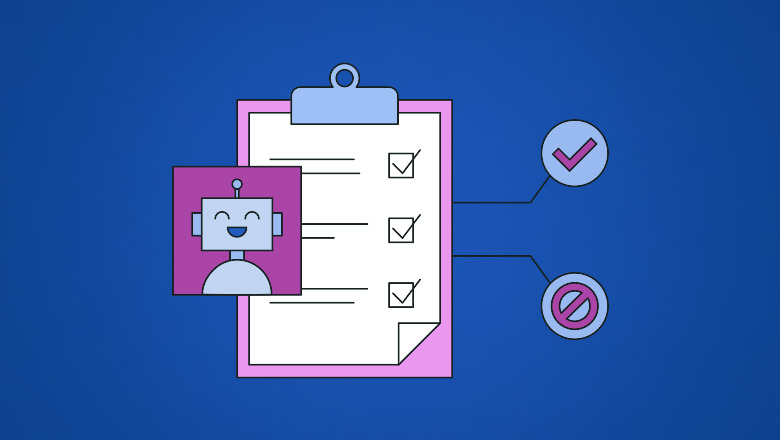How to craft an effective AI use policy for marketing
Technology, like art, stirs emotions and sparks ideas and discussions. The emergence of artificial intelligence (AI) in marketing is no exception. While millions are enthusiastic about embracing AI to achieve greater speed and agility within their organizations, there are others who remain skeptical—pretty common in the early phases of tech adoption cycles.
In fact, the pattern mirrors the early days of cloud computing when the technology felt like unchartered territory. Most companies were uncertain of the groundbreaking tech—concerned about data security and compliance requirements. Others jumped on the bandwagon without truly understanding migration complexities or associated costs. Yet today, cloud computing is ubiquitous. It has evolved into a transformative force, from facilitating remote work to streaming entertainment.
As technology advances at breakneck speed and leaders recognize AI's value for business innovation and competitiveness, crafting an organization-wide AI use policy has become very important. In this article, we shed light on why time is of the essence for establishing a well-defined internal AI usage framework and the important elements leaders should factor into it.
Please note: The information provided in this article does not, and is not intended to, constitute formal legal advice. Please review our full disclaimer before reading any further.


Comprehensively addressing ethical, regulatory and operational aspects in the crafting of an AI use policy for marketing ensures a balanced approach towards harnessed innovation while safeguarding privacy.
This guide on How to craft an effective AI use policy for marketing provides valuable insights into ensuring compliant and ethical uses of Artificial Intelligence in marketing strategies, aligns with industry best practices while promoting customer trust.
The comment reads: Expertly outlines the need for a holistic approach in crafting an effective AI use policy that balances efficient marketing strategies with ethical considerations towards data privacy and user rights, while emphasizing transparency to build trust between brands & customers.
Constructing an effective AI use policy for marketing necessitates a careful balance between embracing technology's potential and ensuring ethical, transparent methodologies that safeguard customer data privacy.
An effective AI use policy for marketing must balance innovation with a strong emphasis on ethics, data protection laws compliance and ensuring seamless customer experience – this article provides valuable insights to achieve just that.
Crafting an effective AI use policy for marketing necessitates a nuanced approach that balances the pursuit of innovative strategies with ethical considerations, ensuring both customer privacy and fair data practices.
This article on crafting an effective AI use policy for marketing delineates proven strategies to strike a balance between leveraging the potential of artificial intelligence while ensuring compliance with ethical principles and legal frameworks.
Crafting an effective AI use policy for marketing necessitates a balance between fostering innovation, ensuring ethical practices such as transparency and accountability in data handling,& incorporating robust governance mechanisms to safeguard customers' privacy.
The article on 'How to craft an effective AI use policy for marketing' provides invaluable insights into balancing technological advancements with ethical considerations, ensuring both organizational goals and consumer welfare are respectfully prioritized.














